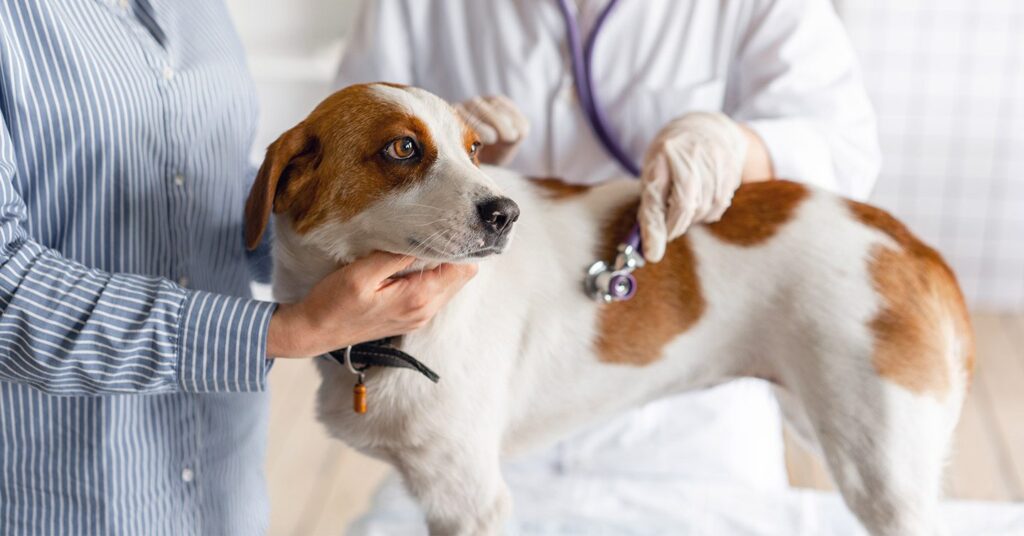- Aug 12, 2024
- 7 min read
Key Points:
No, dogs should not eat grapes in any amount.
Despite potential health benefits in humans, grapes pose serious risks to dogs.
Dogs should avoid all forms of grapes, including raisins and currants.
We’ve all been there, chasing our dog around the house to get that half-eaten chicken bone out of their mouth. Let's face it, dogs aren't exactly food connoisseurs — they'd happily eat from the garbage if we let them.
It’s not that they lack intelligence when it comes to deciding what to gobble up. Dogs just rely heavily on their sense of smell and will eat anything that smells good to them, even if it's toxic. We humans know not to eat our vanilla lip balm, no matter how good it smells, but your pup doesn’t know better.
A slice of pizza smothered with onions. A bowl of grapes. The chocolate chips that you left on the counter for two seconds. It’s all fair game to them. And when a human food is toxic to dogs — like chocolate, onions, and, yes, grapes — pet parents are the first line of defense against accidental poisoning.
While not as widely known as the dangers of chocolate, grapes are highly toxic to dogs, even in small amounts. As few as four or five grapes can cause acute kidney failure or even death.
Let’s dig a little further so you know why grapes should be strictly off-limits to your pup and which fruits you can feed them instead.
Grapes are unsafe for dogs in any amount
Grapes are toxic to all dogs, regardless of breed, size, or age.
Although they carry many benefits for humans, including antioxidants and loads of vitamins and minerals, they spell big trouble for dogs.
When we talk about grapes (including green grapes, red grapes, and seedless grapes), we're also talking about raisins, currants, and grape juice. They all contain toxins that can poison your dog and potentially cause acute kidney failure and even death in 72 hours or less.
Also, be careful of baked goods and trail mixes, which often include grapes, raisins, and currants.
Why are grapes bad for dogs?
Recent research has discovered that tartaric acid, a natural substance in grapes, is the most likely culprit for causing kidney failure in dogs. For a long time, grape toxicity in dogs was something of a mystery to veterinarians.
Now, it’s believed that tartaric acid damages the kidney tubes, the tiny structures responsible for filtering waste and maintaining fluid balance.
The concentration of tartaric acid in grapes depends on the type of grape, growing conditions, and ripeness. This could explain why some dogs show mild symptoms while others suffer severe reactions from eating the same number of grapes.
It’s possible that other compounds in grapes also add to their toxicity, but we still don’t know for sure. What we do know for sure: Grapes are not a fruit you can safely give to your pooch.
The risks of grapes for dogs
Grapes and dogs don't mix. These tiny fruits have a toxic punch that can shut down your dog’s kidneys and lead to devastating complications.

Kidney failure is the primary concern
When dogs eat grapes, kidney failure is a serious risk. Kidney failure occurs when the kidney suddenly loses its ability to function and can no longer filter waste from the bloodstream.
Waste products that would normally be expelled from the body start to build up. If left untreated, this could cause:
Uremic poisoning: A buildup of toxins in the blood that can damage other organs, particularly the brain.
Electrolyte imbalances: Minerals in the body become imbalanced, causing other health problems like muscle weakness or heart arrhythmias.
Metabolic acidosis: An excessive amount of acid in the body can lead to breathing problems and impaired bodily functions.
Gastrointestinal bleeding: Toxins build up in the blood and cause ulcers or internal bleeding in the stomach or intestines.
Pet Pro Tip:If you have a dog that is prone to ‘snacksidents’ – you should consider getting a dog insurance plan as soon as possible. It can help you afford the best care in the future by covering eligible vet bills for digestive illnesses, toxic ingestion, and more.
Besides kidney failure, grapes can also cause other health complications in dogs, such as:
Gastrointestinal upset: This includes vomiting, diarrhea, loss of appetite, and abdominal pain.
Neurological symptoms: In severe cases, grape toxicity can damage the nervous system and cause tremors, weakness, and even seizures.
What should I do if my dog eats grapes?
If you suspect your dog has gotten into the fruit bowl and swiped a few grapes, don’t wait — call your vet or the ASPCA Animal Poison Control Center as soon as possible. Research shows that the sooner treatment for grape poisoning begins, the better the outcome.
Watch for the symptoms of grape poisoning
If your dog gobbles up some grapes and exhibits the following symptoms, it could mean they are suffering from grape toxicity and you need to act fast:
Vomiting or diarrhea: Usually happens within 2-12 hours.
Abdominal pain: Abdomen will be tender to the touch. It can happen in 12-24 hours.
Loss of appetite: 24-48 hours after ingestion.
Weakness, lethargy: Can happen within 24-48 hours of ingestion.
Dehydration: Signs are panting, a dry nose and mouth, and pale gums.
Increase in thirst: An increase or decrease of urination, or no urine production at all within 24-72 hours. This could be a sign of acute kidney failure.
When in doubt, call your vet. They will guide you through the safest and most effective next steps to helping your dog. If you can’t get in touch with your vet, you can also call the Pet Poison Helpline or the ASPCA Animal Poison Control Center.
What is the treatment for grape poisoning?

When it comes to grape poisoning in dogs, time is of the essence. Here’s what treatment might look like:
Induce vomiting: If caught within two hours, your vet may induce vomiting and give activated charcoal to bind the toxins and minimize damage.
Urinalysis and blood work: These tests will help assess kidney function and any damage.
Fluid therapy: If your dog is going into acute renal failure, they will start fluid therapy to flush out toxins and restore hydration.
How many grapes can hurt my dog?
All dogs are different. That said, studies on dog breeds and grape or raisin ingestion suggest any amount of grapes can be poisonous.
Keep in mind that body weight may matter when grapes have been ingested. A Pomeranian or Yorkie might have a much lower tolerance to the same amount of grapes as a large dog, like a Labrador or Shepherd.
Grape products to avoid
The dangers of grapes don't stop with the fresh fruit. These grape products are also toxic to dogs:
Grape juice
Grape jelly
Raisins
Currants
The rule of thumb, or paw, is to stay away from any products that are derived from grapes when it comes to your dog. However, there is one notable exception to this rule.
Grape seed extract is generally safe
Grape seed extract has been a supplement for dogs with arthritis for years, with no wide adverse effects. So while the safety is mainly unproven, there seems to be no correlation between the toxicity of grapes and grape seed extract.
Safe alternatives to grapes
There are plenty of other safe and healthy fruits that your dog can enjoy. But remember that fruits should be given in moderation as part of a balanced diet, and it's always a good idea to start with a small amount and see how your dog reacts.
Here are a few of our favorite dog-safe fruits to serve as alternatives to grapes:
Apples
Apples are rich in fiber and vitamin C, and the crunchy texture can help to keep your dog's teeth clean. Just be sure to remove the seeds and core to avoid choking hazards.
Bananas
Dogs can safely eat bananas, which are rich in vitamins, potassium, and fiber. Just be mindful of the sugar content.
Berries
If your household berry budget isn't too out of control already, then you can share strawberries, blackberries, and blueberries with your pup, with the latter being especially beneficial. Blueberries are packed with antioxidants and fiber, and they’re a great source of vitamins C and K. They are also low in calories and sugar, making them a perfect treat for dogs of all sizes.
Pineapple
Pineapples are full of vitamins and minerals. This fruit is also a good source of bromelain, an enzyme that can help reduce inflammation. But always remove the core and skin before giving it to your dog, as it’s harder to digest.
Watermelon
Watermelon is not only a refreshing and hydrating treat for your dog on hot summer days, but it also has plenty of vitamins A and C. Avoid giving them any watermelon seeds or rinds, however.

Don’t risk your dog’s health with grapes
Dogs explore the world through their mouths and noses, and sometimes that means tasting things they shouldn’t. It's up to us to protect them from the hidden dangers in our kitchens and snack bowls. As a responsible pet parent, just say no to grapes.
Unfortunately, accidents can and will happen. With Pumpkin pet insurance plans, you can have peace of mind in knowing you can get your pet the best care when unexpected accidents and illnesses occur.
Grapes and dogs: FAQs
Will my dog be ok if he ate one grape?
Unfortunately, there’s no absolute guarantee your dog will be okay. Some dogs may experience only mild discomfort from one grape, while others could have a severe reaction. Since there’s no way to predict how your pet will react to the ingestion of grapes, it’s always a good idea to err on the side of caution and contact your vet — yes, even if your dog ate just one grape.
Why can’t dogs eat grapes?
Grapes contain tartaric acid, which veterinarians now believe is toxic to dogs. It’s likely what causes kidney failure and other health problems. That being said, there’s still a lot we don’t know about grape toxicity in dogs.
What if my dog eats grapes but seems fine?
Even if your dog seems fine, you should still seek veterinary care or talk to your veterinarian to be safe. The signs of grape toxicity may not appear for several hours or even days. Early intervention and prompt medical care can significantly improve your dog’s chances of a full recovery. If your vet isn’t available, you can contact the ASPCA animal poison control hotline.
REFERENCES

